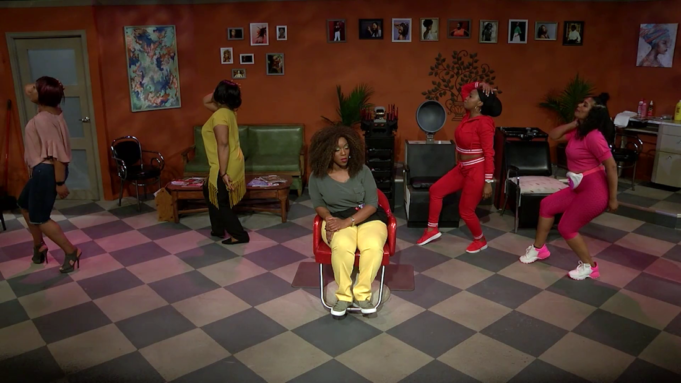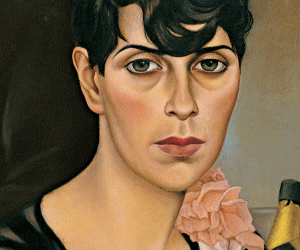I find myself dissatisfied with Jubilee Theatre’s new show, Da Kink in My Hair. I saw the final show of the troupe’s season on streaming, but I think I would have felt the same way had I seen Trey Anthony’s musical live. Premiering in Toronto in 2001, the play belongs to a tradition of Black theater that does away with the trappings inherited from European theater such as character development and plot in favor of finding a form of theater that compels an audience by different methods, such as reducing drama to a series of monologues. This has resulted in such powerful works as Lorraine Hansberry’s To Be Young, Gifted, and Black and Ntozake Shange’s for colored girls who have considered suicide / when the rainbow is enuf. However, when the quality of the writing drops just a little bit, you really feel the lack of those structuring principles. I’m not used to walking away from a Jubilee Theatre musical feeling unfulfilled, but this production seems to demonstrate the limitations of the approach.
The play is set in a hair salon owned by Novelette, a.k.a. Letty (Shaundra Norwood), a Caribbean immigrant who can tell the secrets of her mostly Black customers by touching their hair. As she does, eight of her customers let loose with their innermost thoughts. The first speech by a woman named Patsy (JuNene K., who also serves as director and choreographer of the show), and here’s where I started to run into trouble. This character is presented initially as uptight and churchy, but then her monologue describes her grief over a teenage son who was murdered by persons unknown. The tone is jarring, and while the direction could be at fault, my instinct tells me that it’s in the material. There’s no relation between this private heartbreak and the Christian façade that Patsy puts up to the other customers in the shop. Anthony misses a big opportunity to connect her bereavement with her faith. One piece of the speech retains its power, when Patsy says, “Police pull you over, you’re dead.” I saw the show the day after the news of yet another Black man shot by police while posing no threat and could only think, “Tell me about it.” (Also, stay with us, Jacob Blake. The world wants your side of the story.)
Elsewhere, the script falls victim to patches of overwriting. A stockbroker (Kris Black Jasper) propping up her whole family says, “I can’t believe I’m still here. My legs fell off three weeks ago. My arm disappeared last week. Yesterday, I reached for my coffee, and my fingers dropped off one by one, and nobody noticed.” Without a conventional plot, the drama comes from the twists in the speeches, and they’re not surprising, although the one with the famous Hollywood actress (Angela Spivery) who is secretly gay probably played better at the turn of the century than it does now. The older woman (Crystal Williams) who sings about her late-life sexual awakening is transparently there to give the audience a reason to cheer. The play was originally set in Toronto, and I wish Anthony had addressed the specifics of being Black up north, where they’ve had their own problems with race relations. As someone who is Black but not from the American continent, Letty could have been given a bracing perspective on these women’s troubles, but no such luck. Even the famously fraught topic of how Black women wear their hair is treated superficially. The pop-culture references have been updated to our era — Beyoncé, Rihanna, Taylor Swift — but so much of the play’s message of self-esteem and empowerment seems distant from us today. I found myself missing the soapy dramatics of Steel Magnolias.
At least on the musical front, the show is up to the standards we expect from Jubilee. Whitney Latrice Coulter stands out as a victim of colorism, as does Rebecca Luby as the white mother of a Black son making her first visit to Letty’s salon. Spivery’s brief singing turn makes you wish she had more. That’s good to have, but Da Kink in My Hair makes me hope for more productions next year with a traditional three-act structure or at least with more rigor than we have from this show.
Da Kink in My Hair
Thru Apr 22. Online. $40. 817-784-9378.












